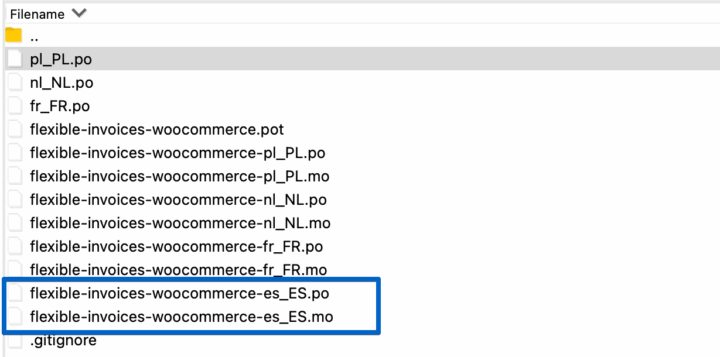For translating your plugin with Poeditor, you need:
- Poedit Editor installed on your computer. Here you can download OS X and Windows versions
- Flexible Invoices for WooCommerce plugin files on your computer
- See visual step-by-step guide about translating a WordPress plugin
You can find the PO and MO files in the Flexible Invoices plugin inside this path flexible-invoices-woocommerce > lang > flexible-invoices-woocommerce-pl_PL.po.
After installing, please open the editor and click File > Open. Please remember you can only edit .po files!
Now you see all the strings, and you can start with the translation. Click on each available string and write your translation into the Translation field.
When you’ve finished, you can save your new translation File as a new one. Please remember that you have to save this File with the plugin name flexible-invoices-woocommerce and the language-specific suffix at the end of the name.
For example, the Spanish translation file name should be flexible-invoices-woocommerce-es_ES. This is very important; otherwise, your translation will not work. Then choose Compile to MO. The files always come in pairs (.po and .mo). WordPress will interpret and pull data from .mo files.

The last step is adding translation files to your server. You can do that through FTP. Go to this path: wp-content > languages > plugins. Add both .mo and .po files into this folder.
Remember that language on your invoice will depend on the current language of the WordPress dashboard. You can read more about translating a WordPress plugin.


